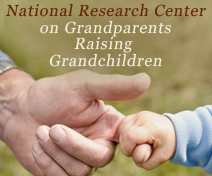ScholarWorks > Institutes & Centers > Grandparents Raising Grandchildren > GrandFamilies > Vol. 4 > Iss. 1 (2017)
Abstract
Increasingly, grandparents are raising grandchildren because of the absence of the parental generation due to HIV/AIDS in Vietnam. However, few studies have explored the strategies and plans of grandparents for the future care of their grandchildren in case they can no longer provide care. In-depth qualitative interviews were conducted with a purposive sample of 21 grandparent caregivers and seven key informants in both urban and rural communities in Hanoi and Hai Phong, Vietnam. Five grandparents were selected from the sample to complete participant observations. ATLAS.ti was used as a qualitative data analysis tool. Transcriptions from interviews and field notes were analyzed through constructivist grounded theory coding techniques. The analysis lead a category of “anticipatory coping of guardianship planning.” Within this category, four properties illustrated grandparents’ stance on guardianship planning for their grandchildren. These four properties included: (1) making plans with extended family, (2) investing in education, (3) not having options for guardianship care, and (4) seeing the orphan village as a final option. Whether and how grandparents planned and dreamed for the future was affected by key contextual factors such as the HIV status of their grandchild(ren), their financial situation, their family network, their personal health status, and the extent of community resources. Practice recommendations made in partnership with local nongovernmental organizations are discussed, which include incorporating conversations about guardianship planning into existing casework and incorporating the extended family network into these conversations. Recommendations for policy makers and community leaders include extending government grants to provide adequate benefits including financial, health, and social services to low-income grandparents and extended family members who are fostering grandchildren due to HIV/AIDS.
Recommended Citation
Harris, L. M.,
Wilfong, J.,
Thang, N. D.,
Kim, B.
(2017). Guardianship Planning Among Grandparents Raising Grandchildren Orphaned by HIV/AIDS in Northern Vietnam. GrandFamilies: The Contemporary Journal of Research, Practice and Policy, 4 (1).
Available at: https://scholarworks.wmich.edu/grandfamilies/vol4/iss1/7
